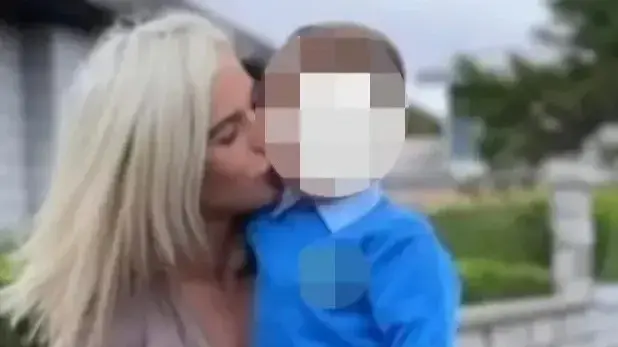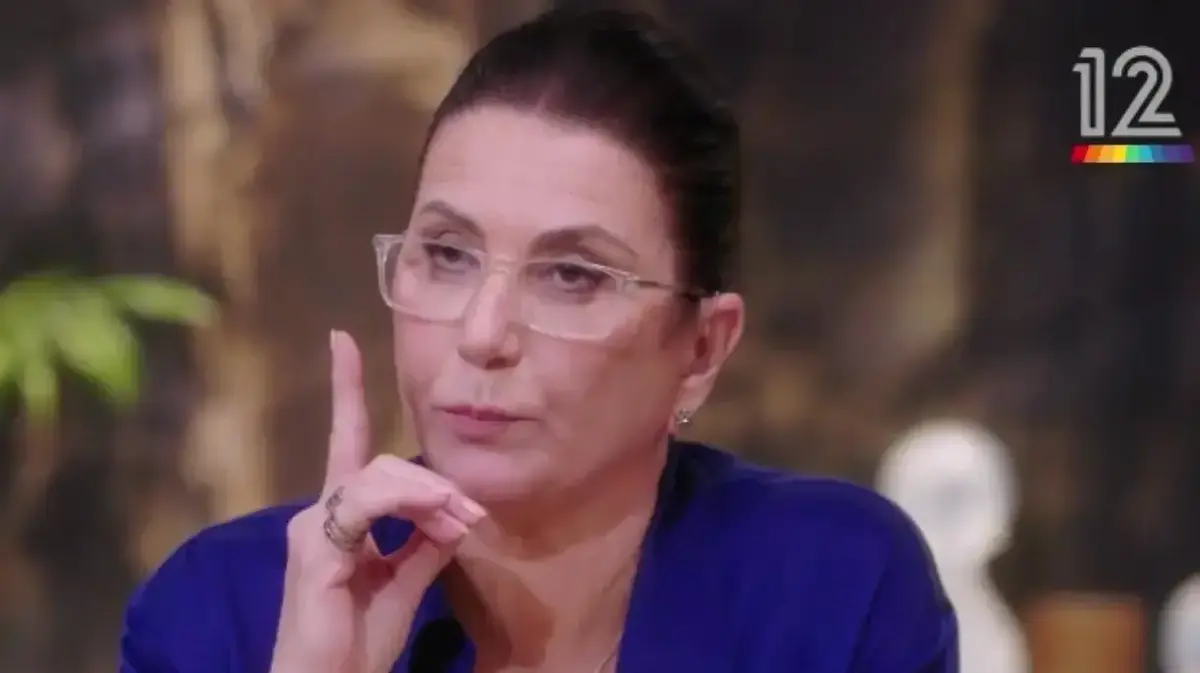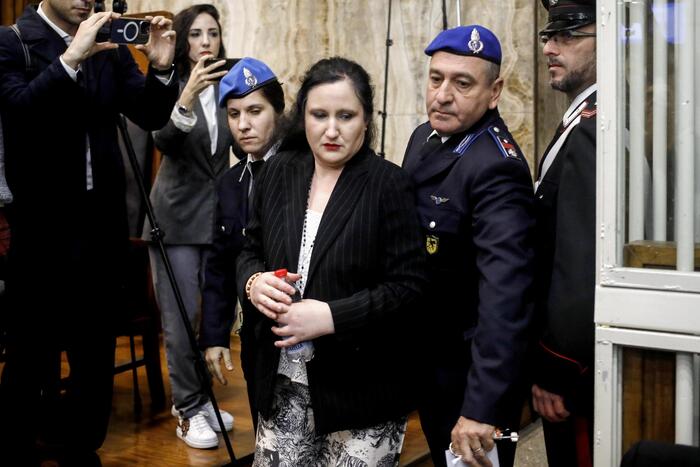"I've never thought about abortion, to be honest, but what I do know is that I wouldn't want to be a mother at 16."
She tells Clara, she has just turned 17, and she assures that this is not one of the topics that she talks about with her friends.
Nor Paula, Marta, Alba, Mía, Alicia, Marina, Bea, Mercedes, Lucía or Rosario.
Abortion is not among her concerns and they hope that she will continue to be.
All but one agree with the lowering of the age to 16 to abort without the permission of mothers and fathers that the Ministry of Equality has included in the reform of the abortion law that will go to the Council of Ministers next Tuesday .
And they all add something: "I would tell my mother."
What if their mothers disagree?
Almost all of them end up answering the same thing: they would decide to abort.
For mothers and fathers it is different.
The positions range from outright rejection to support, although wishing that the moment never comes.
Many are torn between respect for the autonomy of their daughters and the fear of not knowing what is going on in their lives.
Lourdes Gaitán, PhD in Sociology and founder of the Group for the Sociology of Adolescence and Childhood (GSIA), focuses on the changes experienced by society since the first regulation of abortion, in 1985. “Being a girl today is not the same as it was 20 years ago. years or 50. Young women now have access to technologies and media that allow them to acquire experiences and knowledge, they have more elements to have judgment”.
“Saying that we are dependent girls at 16 and that at 18 it is as if a balloon burst and we are no longer dependent is an arbitrary line that we use to have control of those who are smaller than us,” says Gaitán.
Hence the repercussions in the family sphere.
"If our daughters legally have to ask us for permission to work and they can't vote... For now, do we consider that they are ready?" reflects Silvia, who is a mother.
Yes, there are other areas in which 16 years are the limit: it is the age of sexual consent and that established by the patient autonomy law.
Gaitán links it to children's rights: "Fathers and mothers, the girl is not yours, she does not belong to you," says the sociologist, knowing that it is a difficult concept to grasp.
Also for teenagers.
Despite the oft-repeated “I do what I want”, when a critical moment arrives, such as a 16-year-old pregnancy, the retaining wall that the family can represent matters.
“Surely they would make me have it”
Marta and Mía know that their family's decision would weigh more than theirs, and they also feel that this is how it should be.
Marta is 16: “It seems good to me [the drop in age] on the one hand, on the other not so much.
As it is minor, perhaps the control should be held by the parents”.
She would tell her mother “first”: “She would know how to guide me.
Although they would surely make me have it.”
Mía, who turned 18 in April, is the only one who does not agree with the limit of 16: “Parents are up to something.
The first person I would notify would be my mother.
At 16 she would have had an abortion for sure, now at 18… I think not”.
And Lucía, 17, thinks "of all those who do not trust their mothers."
Those, says Ada Santana, president of the Federation of Young Women, are the vulnerable part: “It is worrying that a 16-year-old woman becomes pregnant, but the ones that worry us the most are those who will not be able to tell at home, it is to them Who do we have to protect?
Juan José, father, thinks about it: “The problem is in families where if the father finds out that the daughter is pregnant, he beats her up... And if the pregnancy becomes dangerous, does it depend on that father authorize it?
They may seem like extreme situations, but they do happen.
Santana points to the many mothers who defend their right to "protect their daughters."
"Do they understand that their daughters do not have the capacity to decide to abort but they do have the capacity to be mothers at 16?"
Marina, who will turn 16 next August, speaks of "madness" and how "what the parents feel is understandable", but "in no case can they be allowed to decide" about that: "I put myself in the situation that They will force me to have a baby next year and the world is coming down on me.”
Breaking the home and family pattern in favor of personal development
In recent decades, generations have grown up and have been socialized in a different way.
Especially the women.
"Young girls have almost completely broken with that pattern that at 18 the dream is to get married and have children," says Santana.
Women have conquered public space and freedom.
"The new generations are not willing to give that up, there is a change of conception that goes through growing up, developing professionally, finding their autonomy...", she adds.
The 2017 Fad Juventud Foundation youth maternity study, which collected data on women between the ages of 18 and 35, reflects that the vast majority between the ages of 18 and 24 did not want to be mothers at that time (64.8% ), 12.8% did not know whether or not they would like to be a mother and 10.2% were clear that they did not want to have children.
Only 8.1% responded "soon" to the idea of having them.
Rosario, who with the current law can have an abortion since last year, is clear that three years ago, when she was 16, she would have gone “heads up” to tell her mother: “And have an abortion.
She didn't have the body, or the mindset, or the money, or anything to have children.
If I have one for my parents to take care of, I don't want to”.
According to the latest report from the Ministry of Health on the voluntary interruption of pregnancy, with data from 2020, the rate of women for every 1,000 who abort under the age of 19 is the second lowest, with 7.41 and has dropped to almost half since 2011 (13.68).
Only that of women over 40, with 3.97, is lower.
And the highest is from 20 to 24, with 15.81.
Educate, prevent, educate, prevent
At the origin is the way to avoid “something that is not trivial”, highlights Lourdes Gaitán: “Abortion is a physical and psychological risk.
To prevent it, it is necessary to promote the access of girls and boys to contraceptive means and encourage boys to use them”.
Sometimes, says the report
Between trust and violence: ambivalences in juvenile sexualities
,
by Fad, both the morning-after pill and the voluntary interruption of pregnancy "are proposed as mitigating the seriousness of a possible unwanted pregnancy".
And she clarifies: "This idea is usually raised by the boys."
The key at this point is sexual affective education.
Equality's draft abortion law reform has this issue as a priority.
And it is not new.
This formation has been part of the theory and policies of progressive governments for years.
However, in practice, it has never materialized.
In an interview with this newspaper last March, the minister, Irene Montero, referred to this education with the words "fundamental" and "mandatory."
In the document that manages your area, reference is made to the fact that the reform "comes to cover the gaps of the previous regulation."
And it reads: "The object of the norm is extended, giving greater weight to sexual education, which becomes compulsory in all educational stages."
It also refers to periodic institutional campaigns and contemplates "the incorporation of quality content, adapted and sufficient on health, sexual and reproductive rights in careers related to legal sciences, educational sciences, social sciences and in the curricula of oppositions linked to these”.
“What I do know for sure is that a 16-year-old girl is not qualified to be a mother”
Álvaro García is a secondary school teacher in a Madrid institute and believes that “there are different levels of maturity at 16 years of age”.
But what he "does" know, "for sure", is that a 16-year-old girl "is not qualified" to be a mother.
She “she has to learn and experience many other things first.
In addition, the care of her does not fall only on her but on her family ”.
For this educator, "it is preferable that at that age she receive public psychological attention from a professional who helps her assess her situation and make a decision than that the family, who often due to convictions does not think about the consequences, decide for her."
The trust that has been worked in each house is fundamental.
Cristina, mother, has “open” the door to her daughters, “for everything, and they know it”.
But she is aware that “it is not the same everywhere”.
Gaitán, the sociologist, opts for "they do not need permission but they do need consultation, support."
Paula, who came of age in March, believes that "parents are guardians and it would not be right to do so without their knowledge."
Alba, 16, "would never do it" without telling her mother: "She would accompany me, I would feel calmer."
María, now 18, goes further, but also with her mother: “It is you who has the baby, it is your decision.
Mind you, I would tell my mom, she would be the only person I would tell.”
A few days ago, Leslie Jamison, an American essayist, wrote in this newspaper: “Raising children completely changes the basic pillars of experience: time, sleep, money, loneliness.
In other words, every moment of parenting—every hour, every day—is an argument for why it's important to make parenting a choice.
Abortion is not just about pregnancy or childbirth;
it has to do with all that life that follows: a life of absolute responsibility, without palliatives, without interruptions;
and also with the life of the child”.
"The thing is not to get there"
"The thing is not to get there, I say."
Bea speaks very quickly, about to turn 18, in an Instagram audio: “Sometimes the problem is how you don't get there, because you don't see if there are traps along the way: when you have to convince your boyfriend, or not your boyfriend , that either with a condom or nothing”, or “when you think that because you are in love it is no longer necessary”.
The report
Between trust and violence: ambivalences in youth sexualities
, by Fad Juventud, delves into "the burden that is transferred to women, in many cases, when it comes to getting the condom to be inserted inside the intercourse”.
This generates, according to the report, "a scenario of strong inequality" when it comes to "approaching prevention within the framework of their affective sex relationships."
Mercedes doesn't know how to explain “why, but she's like the thing that if you tell her about the condom she's going to get upset” and “sometimes, you give in”.
But she does know that "in the end, if something happens, the consequences fall on you."
Fad's study confirms "the processes of domination and situations of lack of protection that young women face today where they still continue to bear, in many cases, all the symbolic and physical weight of both condom use and assuming the consequences".

/cloudfront-eu-central-1.images.arcpublishing.com/prisa/2KELRRQNA5BERLOFLBQOFWKX6Q.jpg)


/cloudfront-eu-central-1.images.arcpublishing.com/prisa/5CLYTLCI4JEMPPBIJCPSN2TOPY.jpg)




